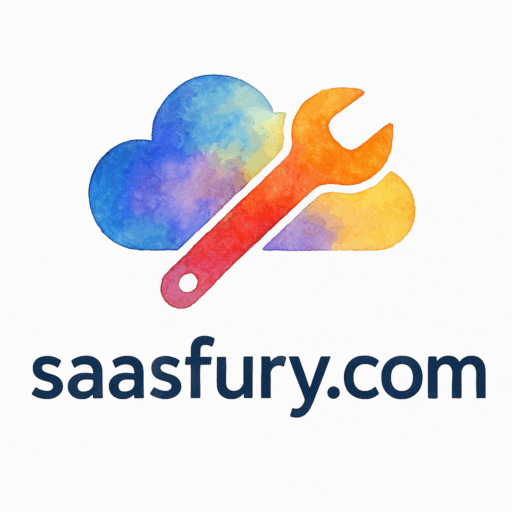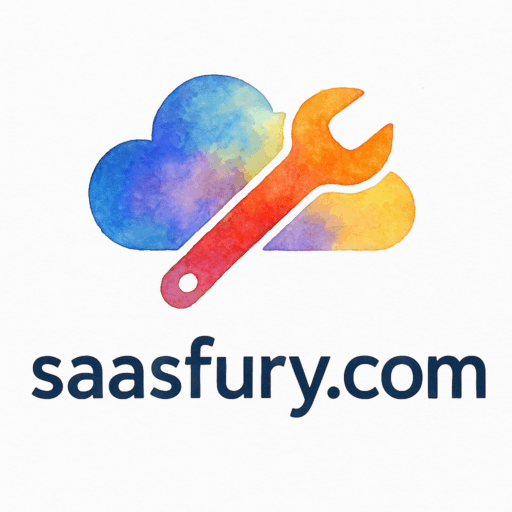Introduction to SaaS Tools for Nutritionists
Being a nutritionist in today’s digital-first world is exciting, but also challenging. You’re not just guiding people toward healthier eating habits—you’re managing appointments, tracking client progress, creating meal plans, and maybe even selling digital products. That’s where SaaS tools come in.
These tools simplify your day-to-day work by automating tasks, improving client communication, and giving you more time to focus on what you do best—helping people achieve their wellness goals.
Why Nutritionists Need SaaS Tools
The Growing Role of Technology in Nutrition
Gone are the days of paper charts and manual diet tracking. Clients now expect streamlined, digital-first experiences. Technology allows nutritionists to deliver professional, personalized care while staying organized. Many of these tools are already being used across industries like healthcare and wellness and online education, which shows just how adaptable SaaS can be.

Benefits of Using SaaS Tools in Daily Practice
- Save time with automation
- Reduce no-shows with scheduling reminders
- Improve client engagement through digital tools
- Offer more value with nutrition tracking and telehealth services
- Expand income streams with online products and services
Simply put, SaaS tools help you run your practice like a business—efficient, scalable, and client-focused.
Key Features to Look for in SaaS Tools
Ease of Use and Accessibility
If it takes hours to learn, it’s not worth it. Look for tools that are intuitive and user-friendly. Platforms built for small business management are a good benchmark for simplicity.
Data Security and Patient Privacy
As a nutritionist, you’re dealing with sensitive health data. Make sure the SaaS tool you choose is compliant with regulations like HIPAA or GDPR. Tools developed for medical SaaS and patient records usually have advanced security features.
Customization and Integration
The best SaaS tools for nutritionists work with your existing systems. Whether it’s syncing with calendars or integrating with e-commerce platforms, flexibility is key.
7 SaaS Tool Recommendations for Nutritionists
Now let’s dive into the seven must-have SaaS tools that can take your nutrition practice to the next level.
1. Practice Management Software
Managing client records, scheduling, and billing can be overwhelming. A solid practice management SaaS tool can automate these tasks.
Best Option: All-in-One Scheduling & Billing
Look for software that combines appointment booking, client notes, invoicing, and reminders. Many tools in professional services already offer this type of functionality.
2. Nutrition Tracking Platforms
Nutrition is all about consistency, and clients often struggle to stay on track. With a nutrition tracking tool, you can keep clients accountable.
Best Option: Food Diary and Macronutrient Tracking
Choose a tool that allows real-time food logging, macro tracking, and personalized meal plan uploads. This feature is similar to what’s trending in healthcare tools for doctors and dietitians.
3. Telehealth and Video Consultation Tools
Virtual consultations aren’t just a trend—they’re the future. Clients love the convenience, and nutritionists can expand their reach.
Best Option: Secure Virtual Consultations
Opt for platforms designed for healthcare, offering encrypted video calls and easy file-sharing. These are common in telemedicine and medical SaaS, making them a reliable choice.
4. Client Engagement & Communication Platforms
Sometimes clients need more than just monthly check-ins. A SaaS communication tool keeps them motivated and supported.
Best Option: Automated Reminders and Messaging
With features like text reminders, in-app chat, and progress notifications, you can stay connected without burning out. Similar platforms are widely used in hospitality and service industries for customer engagement—so why not apply the same logic in nutrition?
5. E-commerce and Online Store Solutions
Many nutritionists boost income by selling supplements, e-books, or custom meal plans online. E-commerce SaaS tools make this seamless.
Best Option: Selling Nutrition Plans and Supplements
Platforms like Shopify or WooCommerce let you build an online store quickly. These are already powerful in retail and e-commerce industries and can easily be applied to nutrition products.
6. Content Creation & Graphic Design Tools
Visual content sells—whether it’s a recipe guide, Instagram post, or a professional client handout.
Best Option: Creating Nutrition Guides and Visuals
Graphic design SaaS tools like Canva help you design meal plans, infographics, and social media content. They’re also essential in creative industries and marketing agencies for engaging content.
7. Data Analytics & Progress Tracking
Clients want proof of progress. Analytics tools let you show measurable results, which builds trust and keeps clients motivated.
Best Option: Monitoring Client Success Metrics
Look for software that integrates wearable data, tracks body composition, and generates progress reports you can share with clients. These are inspired by omnichannel analytics tools used in retail and healthcare.
How to Choose the Right SaaS Tool for Your Nutrition Practice
Budget and Scalability Considerations
Start with what you can afford, but think long-term. A scalable SaaS tool grows with your practice, saving you from switching later. The best examples of scalable solutions come from consulting SaaS tools that serve businesses of all sizes.
Testing and Trial Periods
Most SaaS platforms offer free trials—take advantage of them. Test the features, user experience, and integrations before committing.
The Future of SaaS in Nutrition and Wellness
AI and Personalized Nutrition
Artificial Intelligence is already shaping personalized diet plans by analyzing genetics, lifestyle, and health data. Expect even smarter SaaS tools soon—similar to innovations happening in healthcare AI.
Integration with Wearables and IoT
From smart scales to fitness trackers, SaaS tools will increasingly integrate with wearable tech, giving nutritionists more data to guide clients—just like hospitality tools are integrating with guest devices to enhance customer experience.
Conclusion
Nutritionists have more opportunities than ever to streamline their practice, improve client outcomes, and scale their business with SaaS tools. By choosing the right platforms, you can save time, boost engagement, and deliver measurable results that clients love.
Whether it’s managing appointments, creating nutrition plans, or tracking client progress, SaaS tools for nutritionists are no longer optional—they’re essential.
FAQs
1. What are SaaS tools for nutritionists?
They are cloud-based software applications that help nutritionists manage appointments, track client progress, provide telehealth services, and more.
2. Are SaaS tools expensive for small nutrition practices?
Not necessarily. Many offer affordable pricing plans and even free versions, making them accessible to solo practitioners.
3. Can SaaS tools improve client accountability?
Yes! Tools with food logging, reminders, and progress tracking features keep clients engaged and consistent.
4. Do I need multiple SaaS tools or just one?
It depends on your needs. Some all-in-one platforms cover everything, while others specialize in specific areas like telehealth or analytics.
5. How do SaaS tools ensure data privacy?
Reputable SaaS tools follow compliance standards like HIPAA or GDPR to keep sensitive client data secure.
6. Can SaaS tools help me expand my nutrition business online?
Absolutely. With retail software integrations, you can sell digital products, supplements, or online consultations.
7. What’s the next big trend in SaaS for nutritionists?
AI-driven personalized nutrition and wearable tech integration are set to transform the industry in the coming years.

